Profit Warning for GPs, Tax investigations on the rise, are you claiming your tax expenses properly, help with your AGM and what is your PCN doing? For an example of our New Pensions Information Report click here and contact us at [email protected] to take this up.
My name is Lauren Slavin. I’m a partner at Ramsey Brown accountants. I’ve been looking out for GPs, consultants, and other healthcare professionals for many years. And this is one of a series of broadcasts that we make to keep our clients and other people who might be interested in what we have to say up to date with what’s happening in the world of medical finance.
I’m making this broadcast on the 18th of August, 2022, just so you know when I’m making this and whether what I’m saying is in fact up to date.
So let’s just have a look at some of the things I’m going to talk about today. HMRC enquiries up 60%, something I noticed on one of the magazines that came across my desk. We have noticed that our clients are having more investigations than before – they do tend to be around the annual allowance.
If you have tax investigation insurance with us, then at least, you know, that any costs of defending an attack by HMRC will be covered. If you are not sure whether you have text investigating tax verification insurance, or you would like to have tax investigator insurance, then please contact my colleague Fiona Brown at [email protected] and she will be able to help you.
I was reminded of this particular help sheet on doctor’s expenses. As you’ll note, this updated on the 6th of April, 2022. This is quite a useful document from HMRC explaining how particularly GPs personal expenses should be claimed. I have seen in recent weeks and found in talking to some GPs who are not clients of ours that there are some very different ways of doing things, which I think are not right, particularly around claiming cars and claiming for the use of home.
I came across a partner recently, who’s claiming 90% of his car expenses. Remember – traveling from home to work is not deemed to be a business journey. You’re never going to be able to claim 90% of your car expenses, and if you had an inquiry, you most certainly would end up having to pay back tax and interest and potentially penalties. Using your home of course is perfectly reasonable and claiming some tax expenses are reasonable too – reasonable being the operative word here. But if you’re claiming mortgage interest or a proportion of it, then you are potentially invalidating your capital gains tax exemption on your home. So just be aware that if you’re going to be doing something like that, it might not be in your long-term interest.
There are plenty of accountants out there who are not qualified. You can call yourself an accountant and no one will mind, but you can’t call yourself a chartered accountant or a certified accountant. You do have to be properly qualified in order to have that title. So anyone who is a client of ours, you can be quite assured that you are dealing with people who are properly qualified. If you’re not a client of ours, you might want to check.
In my last broadcast, I talked about the horrendous problems with the annual allowance charges for 2022/2023 caused by this disconnect in the CPI between the allowance given by HMRC and the date that is used to outright pensions, and it’s going to cause most people in the pension scheme a problem.
The treasury were asked by our Institute to bring in some form of compensation, and they’ve very swiftly rebuffed and declined the idea. But I did notice this article from the Sunday Times that the trust has talked about the problem, it says that she’s going to sort it out. There’s also an article a couple of days later in the Financial Times that NHS chiefs urge pension changes and urge tax changes on pensions. You might also remember from the last broadcast I made that the Review Body also talk about this problem with the allowance, so it is a problem and it needs to be fixed.
When interest rates go up, so does the rate of interest that HMRC will charge you if you don’t pay your tax on time. So this is just something I noticed the late payment interest is it had a base rate plus two and a half percent. As base rate goes up, so does the interest on overdue tax charge. Rather depressingly the repayment interest, which means the interest they pay you if you’ve overpaid to a tax, is a base rate minus 1% with a lower limit of 0.5%. These are not terrible rates actually, but just worth knowing where you stand, if you are in a position where you can’t pay your tax on time.
This is something that I wanted to briefly talk about – I have come across a number of PCNs who have incorporated. They have become Limited Companies, something we do advocate. We think it’s a good idea for PCNs, by doing different things. So in very simple terms, the way this works is that the PCN subcontracts the work to their Limited Company that they have set up. Now, in some cases, these are set up just to do the ARRS work, and the rest of the PCN work is done with the unincorporated PCN: the core funding and the surplus will sit with the unincorporated PCN.
But then other PCNs are moving more of their activity into the limited company PCN.I raised this as an issue because I think a lot of PCNs who’ve become companies don’t necessarily know what they are doing (in the nicest sense of the word): much of the work that’s going on is being done through that PCN or through that PCN company.
So I mentioned some key issues here that what I’m seeing is that most limited company PCNs are used to employ and supply the ARRS staff, but they can also take on other work. And do you need to be aware of the VAT implications, and how the cost sharing group would work. What about the surplus? Does that sit within the unincorporated PCN where it would be, it would be available to the member practices and partners, but would be subject to income tax in their hands? Or would it be in the PCN Limited Company? In which case it would be subject to corporation tax at 19% with no further tax, unless it was distributed.
One of the advantages of having Limited Companies is you do get some built-in governance in that they’re run by directors and directors have a fiduciary duty to the company that set out in company law. We don’t really have the same form of governance in an unincorporated PCN. And with the incorporated PCN/Limited Company PCN, if the clinical director is a director of that limited company, then that clinical director will be an office holder for sure. And it should be taxed under PAYE. The picture is less clear and a bit muddy if the CD is in an unincorporated PCN. So just really to flag up the fact that there are company PCNs and unknown company PCN, sometimes in the same kind of setup. Just to be clear, and just to maybe think about what it is that goes on within that company and what doesn’t.
This was also an article came across quite recently, and I thought would be quite useful for PCNs and federations. It’s by the Financial Reporting Council. They produced this document on good practice for AGMS. Always good to make sure these things run smoothly.
Now, this is really something that I need to talk about, cause I’m worried about this. We’re now in August, which means we have seen a number of our GP clients with their March year ends, not so much with their junior ends yet, but as part of the work we do with our clients, as I’m sure you’re aware, is that we also make predictions of future drawings and future profits.
We are seeing that profits are not going to be maintained. This obviously has an issue, the long-term future general practice, and I wanted to give you some examples and just talk about where I see the problems and potentially what the solutions might be.
So one of the problems is we have this multi-year deal that was agreed back in 2019. It doesn’t take into account inflation and it’s not going to produce sufficient income to meet the needs of general practice. In the review body reward for this year that I mentioned in my last broadcast, they also noted this was a problem, and they talked about the fact that there needs to be additional funding, but I haven’t heard or seen anything to suggest that that will happen.
I’ve also remember reading in that review body award although they recommended a 4.5% increase in the, in the pay for a salary of doctors, they said that this money should be made available to practices to be able to afford these costs. They said the same thing last year, but there was no money made available. And really, I suppose, if I’m not making these points in the order they’re here, I do feel that the decision-makers are not listening to what’s happening in general practice.
I think the funding stream to general practice are messy and probably not reliable. We have kind of three main sources of income for GPs: it’s their global sum, QOFs and home services. We know the global sun has been inadequate since 2004. We had the correction factor that’s never been fixed. And a lot of funding now come through the enhanced services, different areas have different amounts going into their enhanced services. They can be turned on, they can be turned off and it’s difficult to build resilience, difficult to build proper planning into practices without a proper funding stream.
I make the point here that I think general practices is not being particularly valued. It’s not being listened to. When you have a report on the future of general practice, which talks about GPS becoming salaried in 10 years and throwing 6 billion pounds into general practice to buy up their premises, and this report is endorsed by the health secretary, it really makes you question just how much general practice is understood and how much it is valued. As I said before, it needs to be listened to, it needs to be taken seriously.
What I’m sharing here is a number of examples of our clients that we’ve seen. The reference numbers at the top of just for our benefit really, because we know who they are and you won’t. But what we show here is the list size of those practices, the number of partners we’re looking at, the profits per partner that we know they earned in 2022, and what’s expected in 2023.
And you can see in these three examples, we’ve got significant reductions. And then I make the point below how much of their funding is kind of guaranteed and their global sum and how much comes in from QOF and how much comes in from enhanced services.
Three more practices to look at – similar things that I’m mentioning here: the list size at the top, the number of partners, profits per partner, and again, how much comes in through the global sum, has come through QOF and that it comes through for in-home services. You see the practice in the middle here have a lot less income from their in house services than the other two practices. And that just because of the area they’re in and what services are commissioned locally.
The point that I’m making is that the profits that we’re talking about that are falling are because there are funding streams that are not being repeated. There is increased pressure on general practice to provide services to their patients.
What one practice has adopted is one of putting the survival of the practice first, and they’re saying, okay, we know what we need to be earning in order to provide the right level of service, the right amount of effort that needs to put into the practice. And actually what we’ll have, what will give, what will come out of this is that we will be able to offer less additional clinical provision to our patients. That’s how they’re able to maintain their earnings, but at the expense, rarely of the services that they’re offering to their patients.
There is no doubt. The general practice is under an awful lot of pressure, more pressure than it’s probably had before. It’s not the right time to be cutting back on funding and general practice needs to be listened to, and it needs to be properly funded if it’s going to be able to be maintained.
Lastly, we’re very pleased to say that we are finalists in 2022 Accounting Excellent Awards. We are attending a dinner at the end of the month in which there are five firms in the UK that have been nominated for the final. So we are quietly hopeful that we will do well, but if we do not do well, then it’s at least pleasing for us to have been recognized and to be in this final.
So that’s it really for this month? I hope some of this is useful. And if there’s anything that comes out to this date, you would like to hear more about, then you shouldn’t hesitate to contact us.




